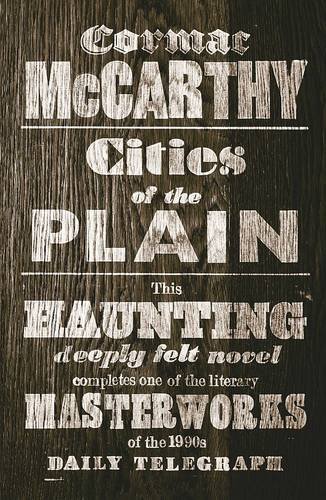Michael E. Henderson's Blog: Henderson's The Literary Man, page 6
September 5, 2014
"A Beast in Venice" in a Bookstore: Wellington Books
Venice has many bookstores. I see locals reading real books all the time. Some stores had mainly Italian fare, with some English, some have only Italian. One time I went into a bookstore on Campo San Aponal and asked whether they had any books in English. The woman looked at me as though I were from outer space and informed me that no, this was Italy. I’m like, ok, fuck you too.

Wellington Books with Gaspare inside
Not so with my friend Gaspare at Wellington books. Virtually all the books ar...
September 1, 2014
Ten Rule in Ten Days - Rule 10: Try to leave out the part that readers tend to skip
Think of what you skip reading a novel: thick paragraphs of prose you can see have too many words in them. People don’t skip dialogue.
This may seem to be self evident, but to the writer, and particularly the new writer, it’s not. We often think that what we have to say is so important, and that our writing is so brilliant, that we can go on for pages, and readers will be so enthralled that they will plow through it, absorbing every word.
But think about what you might skip or skim. I bet it’s...
August 26, 2014
Ten Rules in Ten Days - Rule 9: Don't go into great detail describing places and things.
Unless you're Margaret Atwood and can paint scenes with language. You don't want descriptions that bring the action, the flow of the story, to a standstill.
There has to be description. Without description you have nothing but dialogue and stage direction. Gray figures in a gray background. But it has to be balanced. The problem is that new writers either omit it altogether, or give a big info dump, describing every thing in excruciating detail.

Description consists of sight, sound, smell,...
August 25, 2014
Ten Rules in Ten Days - Rule 8: Avoid detailed descriptions of characters.
In Ernest Hemingway's "Hills Like White Elephants," what do the "American and the girl with him" look like? "She had taken off her hat and put it on the table." That's the only reference to a physical description in the story.
One of the things I see new writers do is to give detailed descriptions of each character as they are introduced. They describe them head to toe, including every physical feature (hair, eyes, mouth, nose, skin), and everything they’re wearing. I find this obnoxious.
I pr...
August 24, 2014
Ten Rules in Ten Days - Rule 7: Use regional dialect, patois, sparingly.
Once you start spelling words in dialogue phonetically and loading the page with apostrophes, you won't be able to stop. Notice the way Annie Proulx captures the flavor of Wyoming voices in her book of short storiesClose Range.

This rule is particularly important for writers like me who live in a foreign country. If the story contains foreigners, you have to sprinkle it with foreign words, and sometimes try to represent the accent.
In the group of short stories Leonard mentions, the flavor...
August 23, 2014
Ten Rules in Ten Days - Rule 6: Never use the words "suddenly" or "all hell broke loose."
This rule doesn't require an explanation. I have noticed that writers who use "suddenly" tend to exercise less control in the application of exclamation points.
First, I'll address "all hell broke loose." This is forbidden for a different reason than "suddenly." It's a cliche'. Martin Amis said that writing is a war on cliche'. It's heard writing. It's been said. The only time a cliche' is allowed is in dialogue, and even then it should be restricted. Maybe a character has a verbal tic where t...
August 22, 2014
Ten Rules in Ten Days - Rule 5: Keep your exclamation points under control.
Keep your exclamation points under control.You are allowed no more than two or three per 100,000 words of prose. If you have the knack of playing with exclaimers the way Tom Wolfe does, you can throw them in by the handful.
New writers love exclamation points. I guess they're afraid that if they don't have them, readers won't understand that the statement is an exclamation. As I've said in at least two of the previous rules, the reader should be able to tell the nature of the statement from t...
August 21, 2014
Ten Rules in Ten Days - Rule 4: Never use an adverb to modify the verb "said."
Elmore Leonard's fourth rule is, Never use an adverb to modify the verb "said" ... he admonished gravely.To use an adverb this way(or almost any way)is a mortal sin. The writer is now exposing himself in earnest, using a word that distracts and can interrupt the rhythm of the exchange. I have a character in one of my books tell how she used to write historical romances "full of rape and adverbs".
Elmore Leonard is one of those writers who subscribe to the “no adverb” philosophy. For those of y...
August 20, 2014
My Funny Video Transcript
As part of my marketing efforts, I made a video of me reading from A Beast in Venice. Beforehand I looked at what other authors did, and learned about tags and keywords, and what to put in the description. I spent a few days working on it, including many takes.
I know I’m not a movie star, and I’m not a great orator. So, I’m not particularly proud of the result. But one of the things I learned during my research was that YouTube automatically makes a transcript of your video so it’s available...
August 18, 2014
Ten Rules in Ten Days - Rule 3: Never use a verb other than "said" to carry dialogue
Never use a verb other than "said" to carry dialogue. The line of dialogue belongs to the character; the verb is the writer sticking his nose in. But "said" is far less intrusive than "grumbled," "gasped," "cautioned," "lied." I once noticed Mary McCarthy ending a line of dialogue with "she asseverated" and had to stop reading and go to the dictionary.
This is a big one to me. One should be able to tell how a person said something by the context.
Here are a few books I skimmed to see what the a...
Henderson's The Literary Man
Warning: Some posts are not fit for children.
- Michael E. Henderson's profile
- 49 followers



